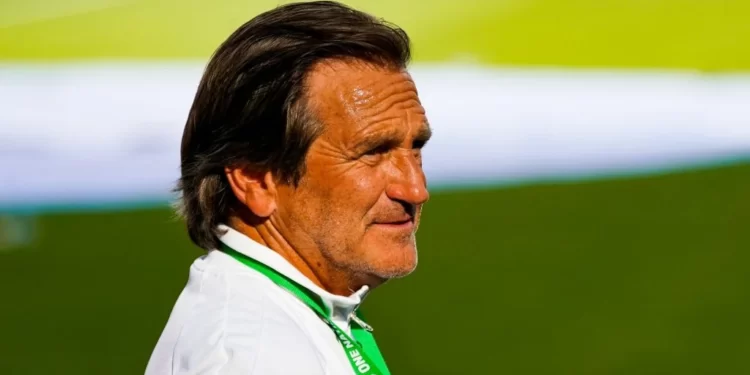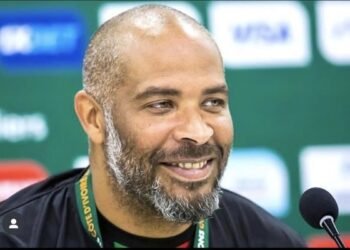The President of the Nigeria Football Federation (NFF), Alhaji Ibrahim Musa Gusau, has confirmed that Super Falcons coach, Randy Waldrum, has been axed from his role.
Waldrum was involved in a war of words with the NFF blaming them over the poor preparation for the women’s team ahead of the 2023 Women World Cup, which they went and put up a gallant display before losing to eventual finalist England in the round of 16.
Despite their performance at the tournament, the coach whose contract expired last month has been told he won’t be given a new deal, dashing his hopes of leading the team for next month’s Olympic qualifiers and possibly the tournament.
Gusau made this known while responding to the House of Representatives’ adhoc committee on sports’ inquest into the row over the bonuses of the team, a situation that dominated global headline immediately after their exit from the tournament.
He said the coach has been cleared all of his outstanding wages and told not to expect a renewal of his deal, before going further to clear the air on the unpaid bonuses of the Nigerian team.
His words, “All the 32 nations that qualified for the World Cup were given $960,000 each for preparation for the World Cup.
“In January, we organised a training tournament of four nations Mexico, Colombia, Costa Rica and Nigeria. Every team used FIFA preparation money. The team was camped in Mexico and they were there for 13 days. In March, they were in Turkey for another training camp.
“The money was not given for the welfare of players but for preparing the team. We paid them allowances as per the tournament they participated in. We cannot use the preparation money to pay outstanding of qualifier matches.
“If the auditors of FIFA should see it, they will query us for that. The money was specific. We cannot use the money for a qualifier that was played in 2019,” he said.
Speaking on the funds allocated to the team by the federal government, he said they got half of what they sent as budget to the ministry after they converted the naira given to them to dollars, no thanks to the high exchange rate.
“It is a budget we presented to the government requesting for intervention from the government, that was what cumulatively came around $1.7 million and the government approved it. And when it got to the federal ministry of finance – they don’t pay us in dollars. The Ministry converted the money into dollars using the official exchange rate. Only half of the money was paid,” he said.
(Courtesy, excluding headline, OwnGoalNigeria)









